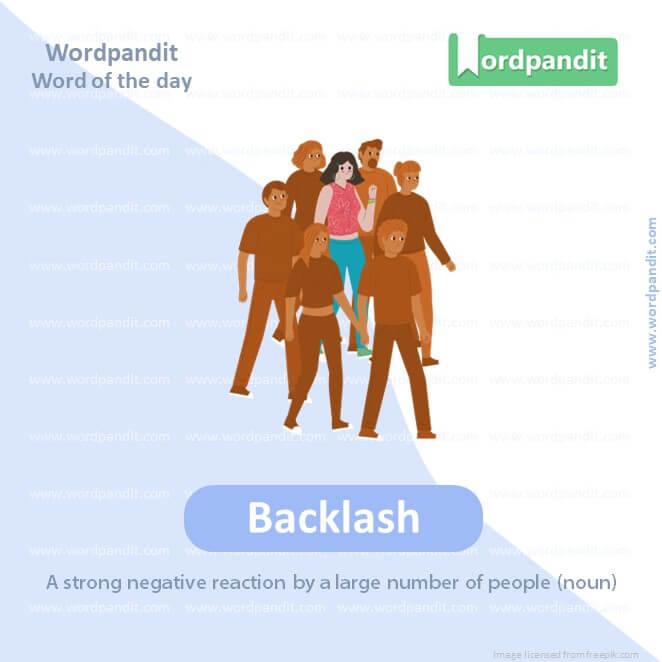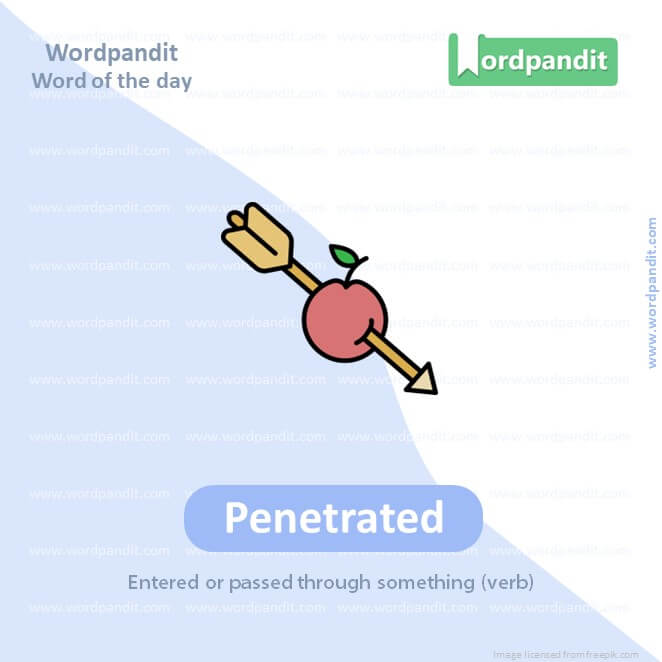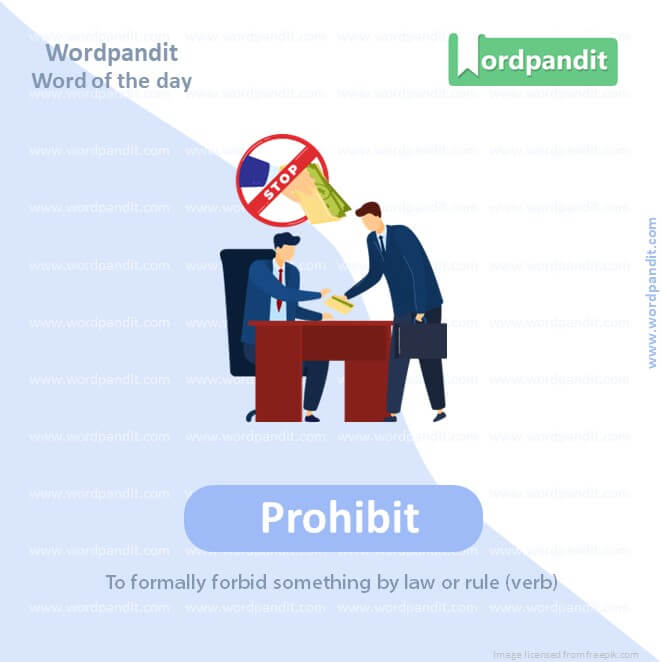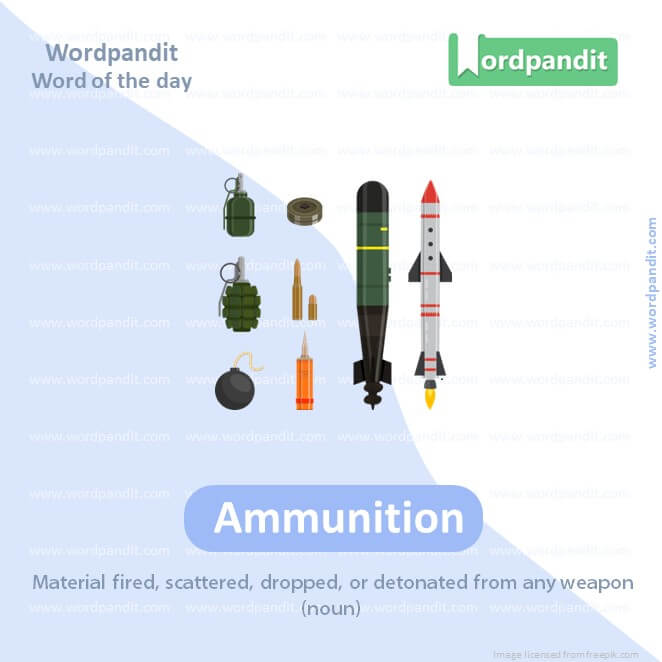Daily Vocabulary Words: List of Daily Used Words in Leading International Newspapers
Hi there. Welcome to this special section @ Wordpandit.
Our endeavour here is very simple: to highlight important daily vocabulary words, which you would come across in leading newspapers in the country. We have included the following newspapers in our selection:
• The New York Times
• The Washington Post
• Scientific American
• BBC
• The Guardian
• Psychology Today
• Wall Street Journal
• The Economist
We are putting in extensive work for developing your vocabulary. All you have got to do is be regular with this section and check out this post on a daily basis. This is your repository of words that are commonly used and essentially, we are posting a list of daily used words. Hence, this has significant practical application as it teaches you words that are used commonly in leading publications mentioned above.
Visit the website daily to learn words from leading international newspapers.

WORD-1: Briskly
CONTEXT: The world’s central banks are moving briskly, and it would seem inexorably, toward introducing digital forms of cash. But I think they are underestimating the backlash from people who worry that digital currencies issued by central banks will become instruments of government control over their lives.
SOURCE: The New York Times
EXPLANATORY PARAGRAPH: Briskly means doing something quickly and with energy. It’s like walking fast because you’re in a hurry or excited.
MEANING: In a quick, energetic, and active manner (adverb)
PRONUNCIATION: brisk-lee
SYNONYMS: Quickly, Rapidly, Energetically, Swiftly, Promptly
USAGE EXAMPLES:
1. She walked briskly to catch the bus.
2. He answered the question briskly.
3. The wind blew briskly, making it feel colder.
4. She briskly finished her homework.
WORD-2: Inexorably
CONTEXT: The world’s central banks are moving briskly, and it would seem inexorably, toward introducing digital forms of cash. But I think they are underestimating the backlash from people who worry that digital currencies issued by central banks will become instruments of government control over their lives.
SOURCE: The New York Times
EXPLANATORY PARAGRAPH: Inexorably means something keeps happening without stopping or changing, no matter what anyone does. It’s like when the sun sets every day, and you can’t stop it.
MEANING: In a way that is impossible to stop or prevent (adverb)
PRONUNCIATION: in-eks-or-uh-blee
SYNONYMS: Unstoppably, Relentlessly, Unavoidably, Unyieldingly, Inevitably
USAGE EXAMPLES:
1. Time moves inexorably forward.
2. The deadline approached inexorably.
3. The consequences of the decision were inexorably felt.
4. Her fame grew inexorably.

WORD-3: Backlash
CONTEXT: The world’s central banks are moving briskly, and it would seem inexorably, toward introducing digital forms of cash. But I think they are underestimating the backlash from people who worry that digital currencies issued by central banks will become instruments of government control over their lives.
SOURCE: The New York Times
EXPLANATORY PARAGRAPH: Backlash is like a strong reaction or response when people are unhappy or angry about something that happened or was said.
MEANING: A strong negative reaction by a large number of people (noun)
PRONUNCIATION: back-lash
SYNONYMS: Repercussion, Negative response, Counterblast, Backfire, Retaliation
USAGE EXAMPLES:
1. The new policy caused a backlash among the employees.
2. There was a backlash against the movie’s controversial theme.
3. The politician faced backlash for his comments.
4. The company retracted its decision due to public backlash.

WORD-4: Penetrated
CONTEXT: Figures on both the left and right fear that a digital currency would replace paper money, giving the government a way to track people’s spending and even control it — say, by making it impossible to buy certain things with digital currency. In theory, a digital currency could be programmed to lose value — a form of negative interest — to get people to spend it quickly. Those concerns have penetrated the public’s thinking deeply enough to surface in the Republican presidential campaign. Central bank digital currencies will allow the government to “prohibit ‘undesirable’ purchases like fuel and ammunition,” Gov. Ron DeSantis of Florida, one of the G.O.P. candidates, contended in July. Vivek Ramaswamy, a rival candidate, has made opposition to central bank digital currencies one of his signature issues.
SOURCE: The New York Times
EXPLANATORY PARAGRAPH: Penetrated means going into or through something. It’s like when water soaks into a sponge, it goes inside it.
MEANING: Entered or passed through something (verb)
PRONUNCIATION: pen-uh-tray-ted
SYNONYMS: Pierced, Entered, Infiltrated, Permeated, Passed through
USAGE EXAMPLES:
1. The light penetrated through the curtains.
2. The needle penetrated the cloth easily.
3. His words penetrated her heart.
4. The roots penetrated deep into the soil.

WORD-5: Prohibit
CONTEXT: Figures on both the left and right fear that a digital currency would replace paper money, giving the government a way to track people’s spending and even control it — say, by making it impossible to buy certain things with digital currency. In theory, a digital currency could be programmed to lose value — a form of negative interest — to get people to spend it quickly. Those concerns have penetrated the public’s thinking deeply enough to surface in the Republican presidential campaign. Central bank digital currencies will allow the government to “prohibit ‘undesirable’ purchases like fuel and ammunition,” Gov. Ron DeSantis of Florida, one of the G.O.P. candidates, contended in July. Vivek Ramaswamy, a rival candidate, has made opposition to central bank digital currencies one of his signature issues.
SOURCE: The New York Times
EXPLANATORY PARAGRAPH: Prohibit means to not allow something or to say that something is not allowed. It’s like when your parents say you can’t have candy before dinner.
MEANING: To formally forbid something by law or rule (verb)
PRONUNCIATION: pro-hib-it
SYNONYMS: Ban, Forbid, Disallow, Prevent, Restrict
USAGE EXAMPLES:
1. The school prohibits running in the hallways.
2. Smoking is prohibited in this building.
3. The law prohibits texting while driving.
4. She was prohibited from leaving the house.

WORD-6: Ammunition
CONTEXT: Figures on both the left and right fear that a digital currency would replace paper money, giving the government a way to track people’s spending and even control it — say, by making it impossible to buy certain things with digital currency. In theory, a digital currency could be programmed to lose value — a form of negative interest — to get people to spend it quickly. Those concerns have penetrated the public’s thinking deeply enough to surface in the Republican presidential campaign. Central bank digital currencies will allow the government to “prohibit ‘undesirable’ purchases like fuel and ammunition,” Gov. Ron DeSantis of Florida, one of the G.O.P. candidates, contended in July. Vivek Ramaswamy, a rival candidate, has made opposition to central bank digital currencies one of his signature issues.
SOURCE: The New York Times
EXPLANATORY PARAGRAPH: Ammunition means the stuff that is fired from guns, like bullets. It’s what guns need to work.
MEANING: Material fired, scattered, dropped, or detonated from any weapon (noun)
PRONUNCIATION: am-mu-ni-shun
SYNONYMS: Bullets, Shells, Rounds, Projectiles, Munitions
USAGE EXAMPLES:
1. The soldiers were running low on ammunition.
2. They stored the ammunition in a safe place.
3. He bought extra ammunition for his hunting trip.
4. The factory produces ammunition for the military.
WORD-7: Contended
CONTEXT: Figures on both the left and right fear that a digital currency would replace paper money, giving the government a way to track people’s spending and even control it — say, by making it impossible to buy certain things with digital currency. In theory, a digital currency could be programmed to lose value — a form of negative interest — to get people to spend it quickly. Those concerns have penetrated the public’s thinking deeply enough to surface in the Republican presidential campaign. Central bank digital currencies will allow the government to “prohibit ‘undesirable’ purchases like fuel and ammunition,” Gov. Ron DeSantis of Florida, one of the G.O.P. candidates, contended in July. Vivek Ramaswamy, a rival candidate, has made opposition to central bank digital currencies one of his signature issues.
SOURCE: The New York Times
EXPLANATORY PARAGRAPH: Contended is when you try very hard to win something or to prove something. It’s like when you really try to win a race.
MEANING: Struggled to surmount a difficulty or danger; competed (verb)
PRONUNCIATION: con-tend-ed
SYNONYMS: Competed, Struggled, Vied, Fought, Argued
USAGE EXAMPLES:
1. She contended for the gold medal in the Olympics.
2. He contended that his opinion was right.
3. Two teams contended for the championship.
4. She contended against great odds.
WORD-8: Surveils
CONTEXT: It’s unsettling that the first large nation to test a central bank digital currency on a wide scale is China, which surveils its own citizens. (Mu Changchun, who leads the digital currency project of the People’s Bank of China, wrote last year that it provides “anonymity for small amounts, traceability for large amounts in accordance with the law” to prevent crime.)
SOURCE: The New York Times
EXPLANATORY PARAGRAPH: Surveils means watching someone or something very carefully, especially to prevent or detect crime. It’s like when a security guard keeps an eye on a store to keep it safe.
MEANING: Watches closely, especially for security or police purposes (verb)
PRONUNCIATION: sur-vaylz
SYNONYMS: Monitors, Observes, Spies on, Keeps watch, Oversees
USAGE EXAMPLES:
1. The police surveils the area for any suspicious activity.
2. The security cameras are used to surveil the building.
3. He was being surveilled by detectives.
4. The government agency surveils communications for security.
WORD-9: Anonymity
CONTEXT: It’s unsettling that the first large nation to test a central bank digital currency on a wide scale is China, which surveils its own citizens. (Mu Changchun, who leads the digital currency project of the People’s Bank of China, wrote last year that it provides “anonymity for small amounts, traceability for large amounts in accordance with the law” to prevent crime.)
SOURCE: The New York Times
EXPLANATORY PARAGRAPH: Anonymity means keeping who you are a secret. It’s like writing a letter without putting your name on it, so no one knows it’s from you.
MEANING: The condition of being anonymous; unknown or unacknowledged identity (noun)
PRONUNCIATION: an-on-im-i-tee
SYNONYMS: Unnamed, Namelessness, Facelessness, Incognito, Unidentified
USAGE EXAMPLES:
1. She donated money to the charity in anonymity.
2. The internet allows people to express their opinions with anonymity.
3. He chose to live his life in anonymity.
4. Anonymity can protect whistleblowers.
WORD-10: Big Brotherism
CONTEXT: Concerns about Big Brotherism came up last week when I moderated a panel on the “digital euro” that was hosted by the European American Chamber of Commerce New York. The speakers argued that some of the fears are grounded in conspiracy theories. While that’s true in some cases, it feels a little too dismissive.
SOURCE: The New York Times
EXPLANATORY PARAGRAPH: Big Brotherism is like when someone, especially a government, watches and controls what people do too much. It’s named after a character in a book who watched everybody all the time.
MEANING: The totalitarian practice of keeping close surveillance over citizens, often invading their privacy (noun)
PRONUNCIATION: big broth-er-iz-um
SYNONYMS: Surveillance, Authoritarianism, Totalitarianism, Oversight, Monitoring
USAGE EXAMPLES:
1. The novel depicted a society suffering under Big Brotherism.
2. Critics argue that new laws could lead to Big Brotherism.
3. He was concerned about Big Brotherism in the government’s policies.
4. The surveillance system was likened to Big Brotherism.
vocabulary journal words
In the realm of language learning, one unparalleled method has been consistently proven to provide tremendous value – engaging with vocabulary journal words. This practice is a brilliant tool that provides a platform for the gradual introduction of new words, phrases, and their nuances.
But how exactly should we approach learning vocabulary journal words?
Originally, vocabulary journal words are a collection of new words you encounter that are challenging and unfamiliar. On stumbling upon such words, take the first step by writing them down in your journal. But simply recording them isn’t enough. The real strength of vocabulary journal words lies in understanding and using them in context. Draft sentences using these words, as this practical usage not only enhances retention but also familiarizes you with their applicability.
Expanding your vision beyond memorization, indulge in understanding the background of these vocabulary journal words. Dive into the etymology of the words, learn their origins, and uncover the different meanings they’ve held over time. This nugget of information often aids in deeper understanding and long-term retention of words.
Your engagement with vocabulary journal words should not be reserved for solitary learning. Discuss these words in conversation with friends, family, or language mentors. This encourages active usage and, silently but surely, integrates them into your everyday language.
Another enchanting side to vocabulary journal words is the potential for creativity. Create small stories or visuals connected to the words, leading your brain to create multiple neural connections to the meaning of the word – a powerful strategy for enhancing retention.
In essence, vocabulary journal words offer a multifaceted, immersive learning process that goes beyond just enhancing your word-list. They open doors to the dynamic world of language and its contexts, training your mind to appreciate, understand, and effectively communicate with an enriched vocabulary. Consider vocabulary journal words not as a task but as your secret allies on your beautiful journey through language learning.











